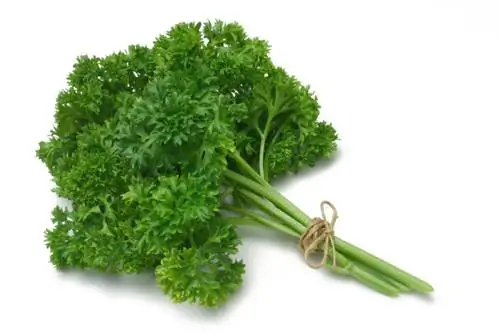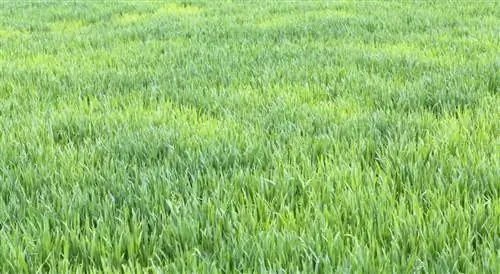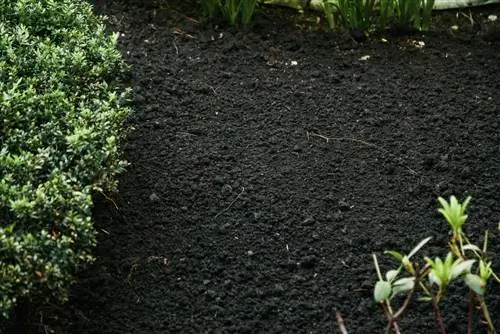- Author admin leonars@hobbygardeners.com.
- Public 2023-12-16 16:46.
- Last modified 2025-01-23 11:19.
Organic gardening is no longer a fashionable topic. The question of how to overcome the shortcomings of conventional agriculture and thus also of conventional gardening has become a question of survival for our planet. Alarming indicators such as the continuous decline in biodiversity, the fishing of the world's oceans, and the over-fertilization of fields are now high on the political agenda. Developing a sustainable way of life has become a priority goal of humanity.

What does biological fertilization mean and what methods are there?
Organic fertilizing supports the natural cycle and improves soil fertility by using organic fertilizers such as compost, cattle manure, nettle manure, compost tea and green manure (e.g. mustard, spinach). These fertilization methods do not provide plants with an overdose of nutrients and promote he althy growth.
This is also noticeable in our gardens. More and more hobby gardeners are critical of conventional cultivation methods and are trying an ecological approach. An important part of the organically cultivated garden is the correct fertilization.
Why fertilize at all?
The question of why fertilization should be carried out at all is justified. After all, nature gets by without any artificial fertilizers; forests and meadows grow in all their glory without ever seeing any fertilizer. However, this does not apply to the garden. In the garden we try to grow crops that would have little chance of survival under real natural conditions with this composition and in a small space. Although it is possible and desirable to design the growing conditions in such a way that they mimic natural processes as closely as possible (keyword: permaculture), creating a completely self-sustaining system in the garden is difficult with many cultivated plants. Fertilization is therefore justified in order to offer the various plants the best possible living conditions.
Why fertilize organically?
In the last century, artificial fertilizers have quickly spread to gardens. The promise of achieving the maximum with minimal effort is too tempting. However, chemical fertilizer has disadvantages: It gives the plants an excess supply of nutrients and food within a very short period of time. The entire soil life is virtually drowned in this blessing. Roots become weak because they are hardly needed anymore, and soil organisms withdraw because there is nothing left for them to do. As a result, the plants permanently lose strength and he alth.
Organic fertilizer, on the other hand, does not provide the plants with an excess supply. The nutrients are first absorbed by the soil organisms, which present them to the plants in the correct portions. This indirect fertilization does not interrupt the natural cycle, the fertility of the soil is permanently improved, the plants thrive vigorously, have resistance and improve their aroma.
Which fertilizer should you consider
A detailed overview of the different fertilizers is given in a separate article. Therefore, here is a short list of possible fertilization methods:
- Compost
- Cattle manure
- Stinging nettle manure
- Compost tea
- Green manure (mustard, spinach etc.)






